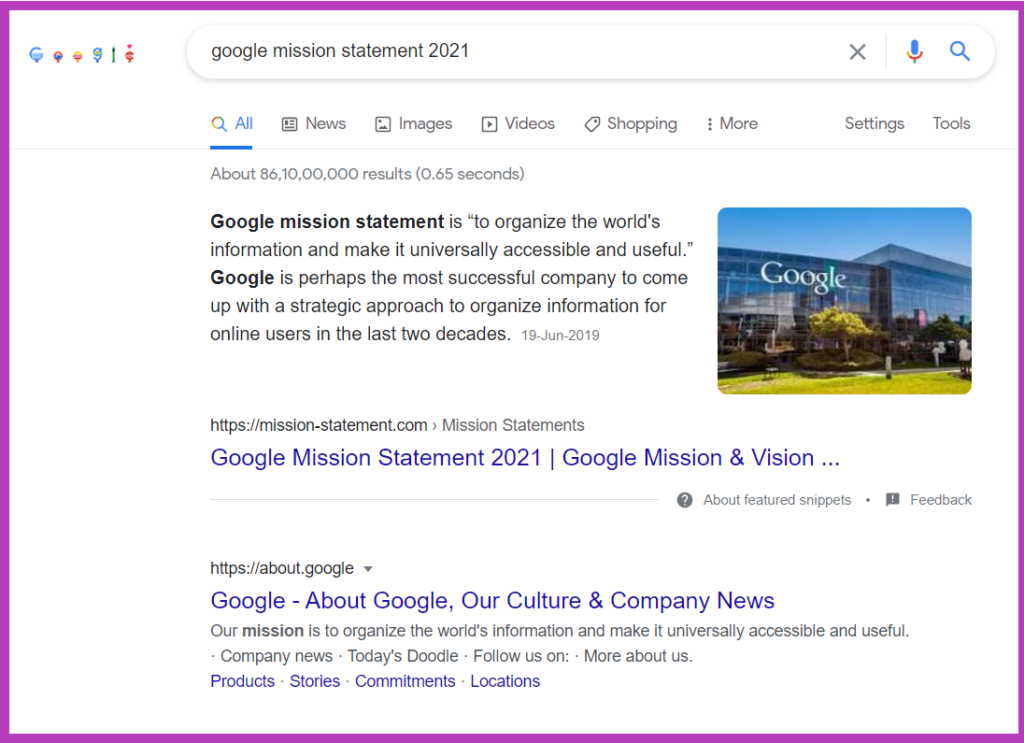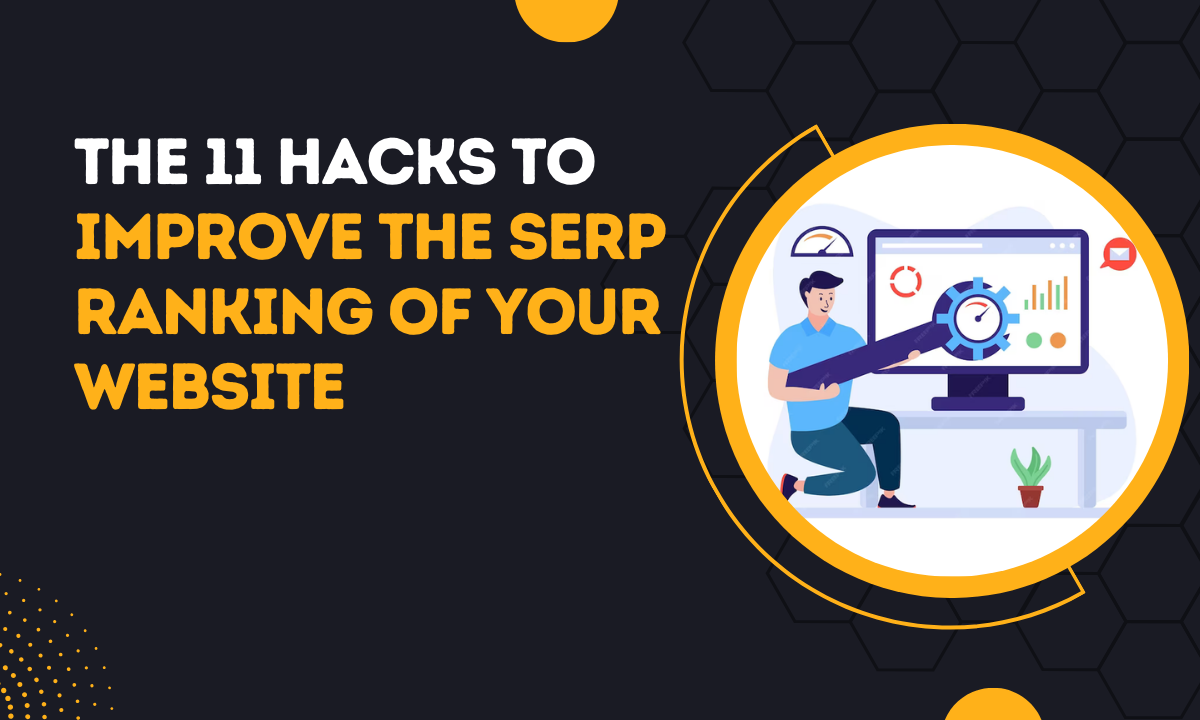The 11 Hacks To Improve The SERP Ranking of Your Website
Every blogger wants to rank high in Google searches. This is what a SERP (Search Engine Result Page) is meant for. A high SERP ranking ensures more traffic for your website.
So what are the best ways to get a high SERP ranking?
Best ways are to stay updated on Google algorithms, know your current ranking, make your site mobile friendly,add great headlines, get organic traffic, do diligent keyword research, and create original content.
Let’s dive right in…
1. Google’s Algorithm Updates.
Google is known for making frequent changes in its algorithms. According to a Moz study, Goolge made about 3000 changes in one year alone.
Essentially, there are so many moving parts in the SEO turntable.
That’s why, it is best to stay updated about these Google algorithm changes.And then tweak your website SEO accordingly.
Take for example Google’s Mobile-Friendly Update of 21 April 2015.
It was termed as the “Mobilegeddon” of this age.
This was when, overnight, Google started favoring sites that are mobile-friendly.

It meant that either your site was mobile-friendly,or not at all.There was no middle ground.And it covered all languages globally.
The end result?
Overnight crashes in rankings for some sites. In fact, worldwide, this change was viewed more as a “cultural shift” and not as a mere SEO change by Google.
You can expect such cultural shifts through Google algos in the future as well.
Similarly, there have been other updates like the Penguin Update in 2012 against spamming (through purchased links) to boost Google Rankings.
One source to update yourself with Google algos is to check out Moz’s Google Algorithm Change History.
2. What’s Your Current Search Ranking?
It is important to know where your site’s SERP ranking is, currently. This is also necessary for evaluating your site’s growth over time.
Here’s something to help you.
In order to assess your keyword ranking, you can refer to serprobot.com or whatsmyserp.com.
WhatsMySerp’s free SERP checker allows you to check the top 100 Google search results for multiple keywords. You can use it to Analyze SERPs and to check your website position. It’s free, and available online.
You can also check Moz.com, where you can use the Rank Check feature in Keyword Lists. And you can check whether the a page or site is ranking in the top 10 positions for the keywords on your list.
3. SERP And Mobile Friendliness
As we have seen earlier in this article, since 2015 Google has ensured that mobile-friendliness is critical for good page rankings.
That’s why I suggest, in case you haven’t yet configured your website for mobile-friendliness then make that a top priority right now.
So here are few actions you can take for a mobile-friendly site:-
1.Use a great mobile-responsive theme.
2.Reduce image sizes.
3.Make CSS lighter.
4.Place your links wide apart
5.Don’t use Flash.
6.Use a large font for mobile.
7.Reduce or alter button size.
8.Don’t employ pop-ups.
Another way to improve the loading speed on mobile is by adding an AMP (accelerated mobile pages) stamp on your site. AMP is essentially a project by Google to ensure fast-loading mobile pages. This too enhances your SERP ranking.
4. Relevant Headlines And SERPs
Since some time now,Google has spelled out its mission statement, “ it is to organize the world’s information and make it universally accessible and useful”.

No wonder the Google algorithm displays the most informative results, out of all other search engines.
And this is why the headline or title of your content assumes high importance.
It is the first thing the user sees.
So your title must answer the user’s typed keyword or query upfront.
Your visitor’s keywords must find an immediate connection with your title. They have to be promising enough to pull your user in.Once that’s done, the user is very likely to dive into your content further.
This is best done with headlines that use long tail keywords.These are keywords that give more specific information about the query of the user.
5. Organic Traffic For Search Rankings
According to higher visibility.com organic search gets 53% more website traffic.
Moreover,organic search drives over ten times more website traffic than organic social media.
Over 99% of all searchers click on one of the links in the first SERP Which suggests that visitors invariably trust organic sites more. Nonorganic sites like paid searches and social media attract fewer visitors.
Then again, as per BrightEdge, organic sites, on average, earn 51% website visitors.
Paid or PPC traffic may get you some traffic to get going initially.
But for best results (over the long term) I recommend sticking to organic traffic. That’s because there will be an eventual trade-off between investment and ROI.
6. Impact Of Keyword Research On SERPs
The user’s needs are very specific.If you can satisfy the user’s query,and offer more value than what he asked for,you will be rewarded with long term loyalty.
This again calls for careful research. Especially about the exact keywords.

In fact,accurate keyword research for an article, helps the user immensely.
That’s one reason why I recommend using long tail keywords for added specificity,and also for engaging the user through his keyword intent.
7. Consistent Original Content For SERPs
Most greenhorn bloggers start off with much fanfare but too often we observe a repetitive pattern playing out.
Pattern like what?
Well, the repetitive theme is a newbie bloggers’ passion quickly wearing off. In fact, they might have a great site design,SEO and mobile optimized pages, and even active social media accounts.
Yet they fail. Wonder why?
Because they stop creating content consistently.
Don’t be that kind of a blogger!
Rather,just create content consistently, and post it regularly according to a decided regularity.And you yourself must decide whether you want to publish posts daily, or less?
The fact is that search engine love regularity of your publishing schedule.The more you publish posts in regular periods of time, the better it is.
Also make sure your content is original and unique.
Now uniqueness is both, non-plagiarised content and new-rare value content.This is such content that a user would find it difficult to obtain from open-source easily.
For example you add value to your content by reaching out directly to the source of information and presenting information to your readers that’s been so far unavailable on the internet.And this is true for all niches; whether it is agritourism,real estate, education,or financial investment related.
You can even enhance the value of your content by optimising keywords on your site.
8. Importance of Social Signals For SERPs
Creating amazing content is useless if no one hears about it.So you would like to reach audiences through mass sharing on social media .
The striking fact is that social media pages are also indexable by Google.And hence they enable Google to understand your site’s credibility.

Not only that, social media networks also help expand your reach. And as a result, you rank high in SERPs.
The best part is that social media helps create an awareness of your link-worthy content, which generates valuable backlinks.And that’s manna for your SERPs.
9. Rich Snippets & Search Engine Rankings
When your content is so good that it automatically answers a pointed question,through a short paragraph,it is called a “rich snippet”.And these rich snippets are featured by Google on top of the search pages.
Matter of fact, rich snippets or featured snippets are great for organic traffic .
And the credit goes to you for that. Because you have earned that rich snippet. Eventually, it augurs very well for your search engine rankings.
That’s why,creating valuable content using well researched keywords works extremely well.
10. SEO Optimised Blog Theme
A website or page that loads fast inevitably offers an awesome user experience.
The idea is to ensure only one thing.

You don’t want your users to wait indefinitely for a page to load. Because according to stats, anything beyond 2 seconds waiting time quickly culminates in user-abandonment.
Usually,website visitors don’t like to be kept waiting for pages to load. Besides, Google algorithms are automatically tilted in favour of fast loading sites.
So the best advice is to carefully select blog themes that enhance your blog’s SEO value.
Ideally a well optimized blog theme for search engines has either or all of these features:-
1.Clean code.
2.A short loading time.
3.Excellent mobile-responsiveness.
11. Unique Domain Name
One clear piece of advice I can share is to avoid using subdomains. Subdomains are subsections of your own website that enable users to navigate to specific parts easily.
For instance, you can create a customer support subdomain for your own website.
But by employing a subdomain, you send out a negative signal to your users.
The perception is that if you’re a serious blogger you will go the extra mile to purchase a unique domain name.
Besides this, the authoritativeness of your blog is also negatively impacted. That’s because of the perceived lower quality of your blog among users.
Also the subdomain (child domain) and the parent domain will be crawled and indexed, separately by Google. So separating your subdomain content from your main website decreases the SEO value of your main website.
Eventually, this adversely affects your rankings.
Related Posts
Incredible Keyword Research Strategies For Beginners (2021)
Daily Posts, Or Less?: How You Can Choose the Best Blog Posting Frequency
Conclusion
Getting a good ranking on SERPs for your website is crucial for your long-term success.
We have covered some of the best ways to improve Google search rankings, and effectively your website rankings.
These are simple but effective methods that can be applied anytime starting today to get best results for your site.

